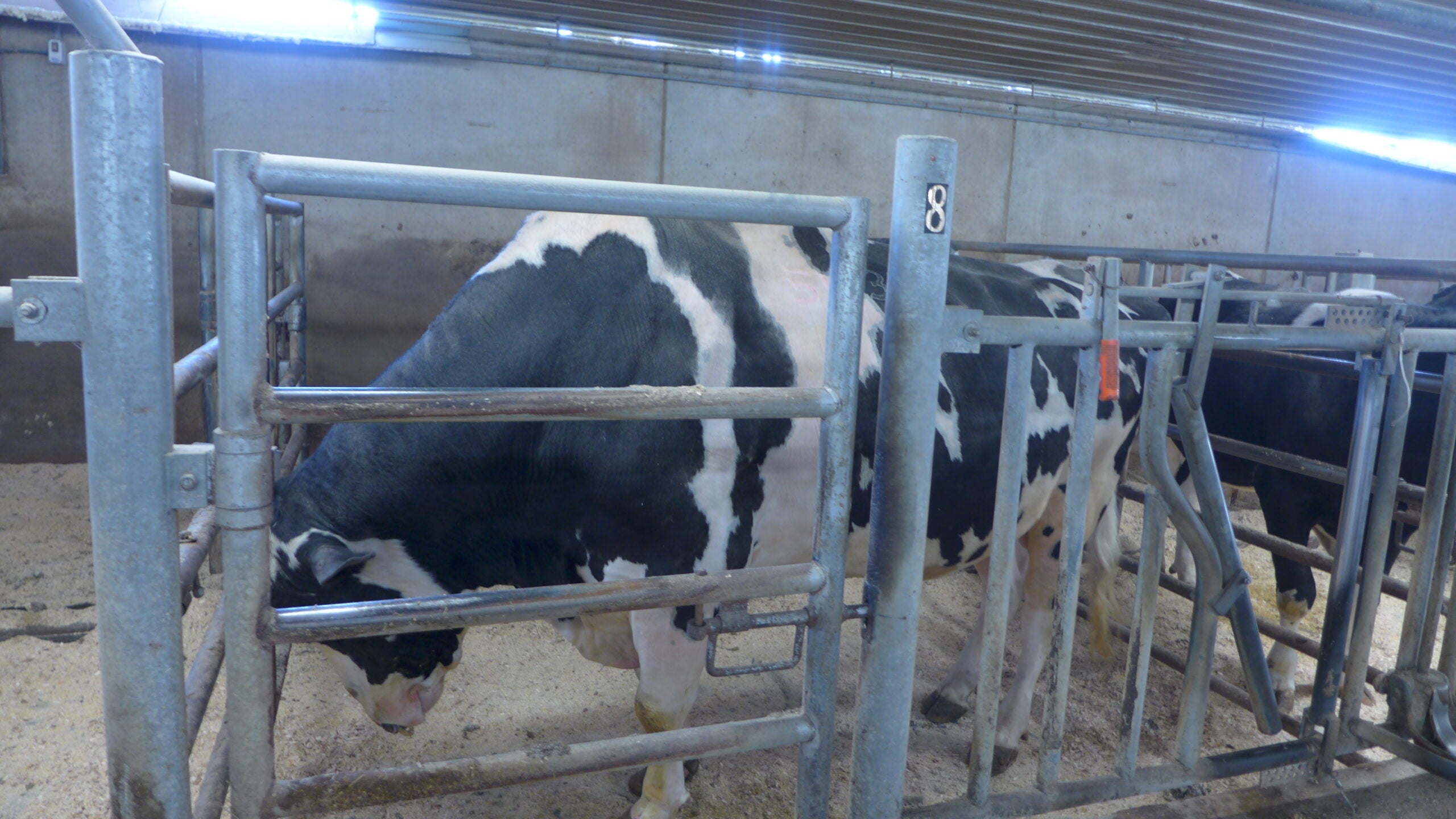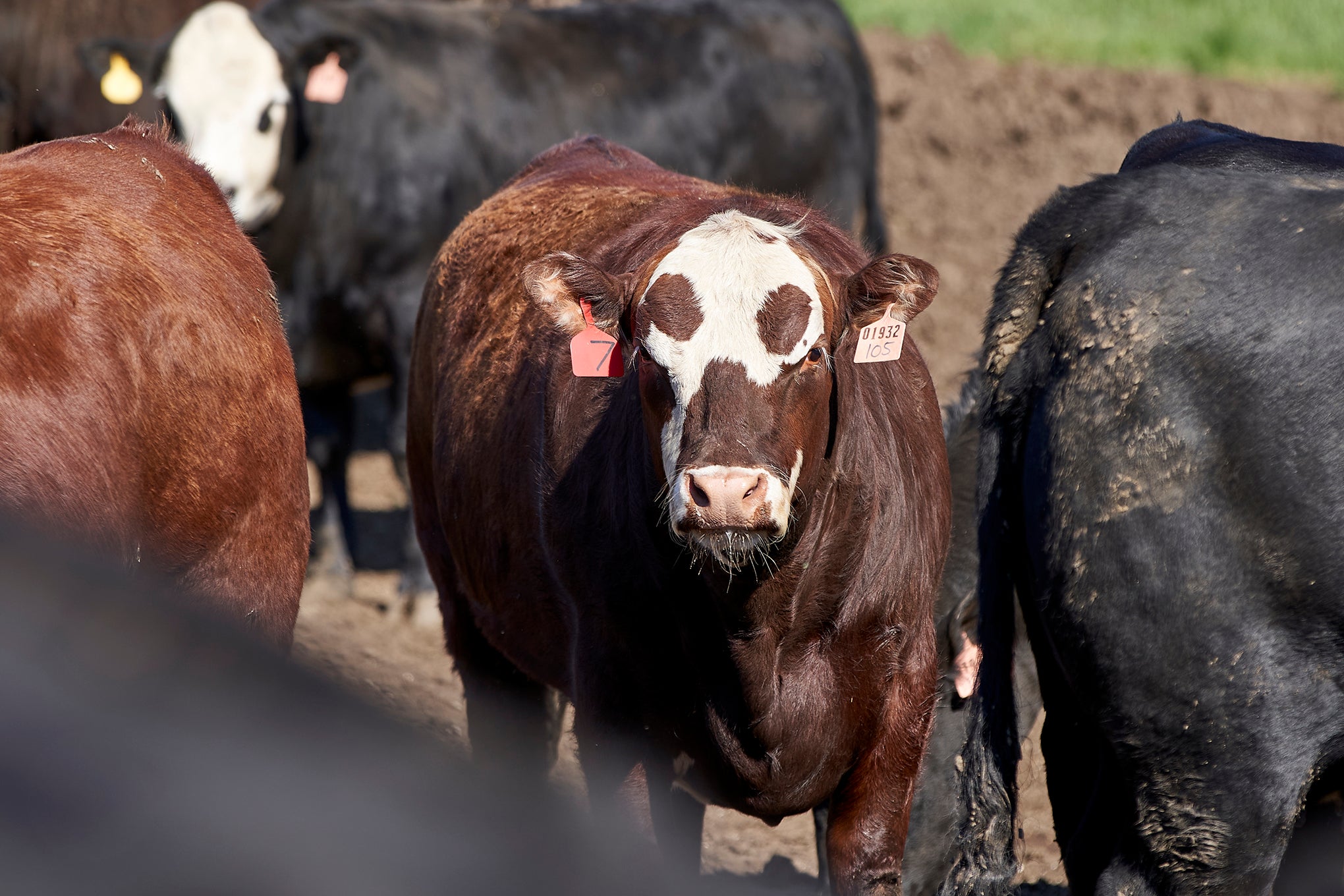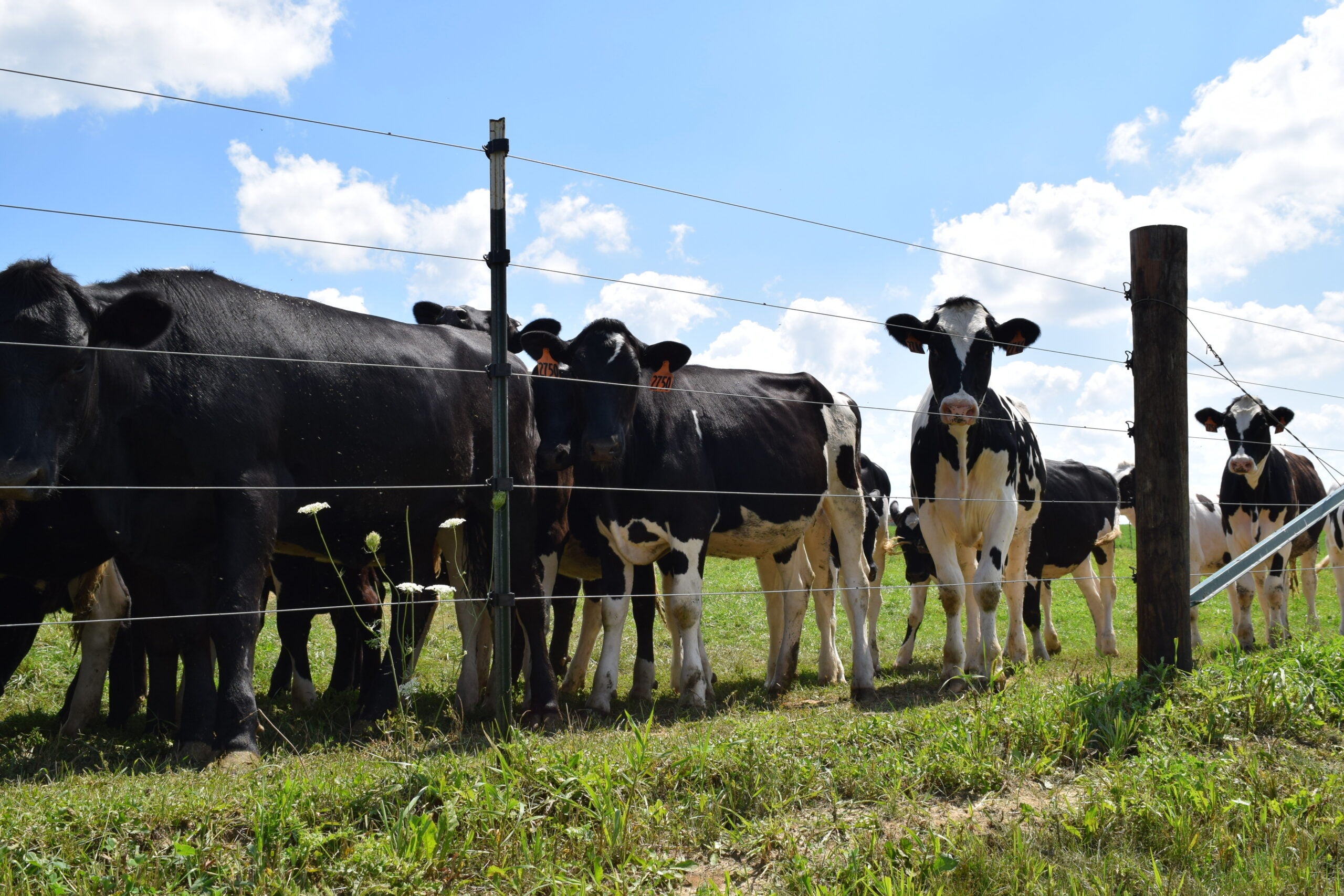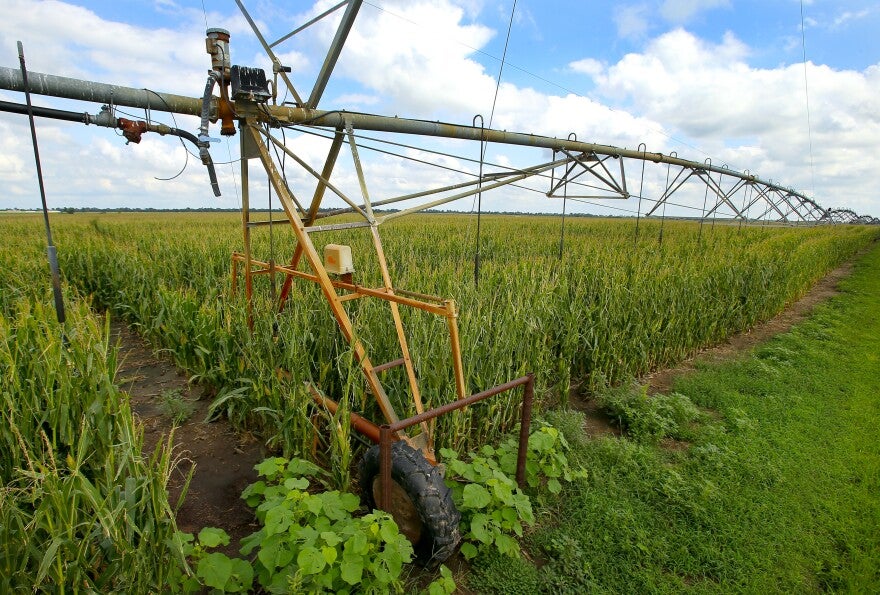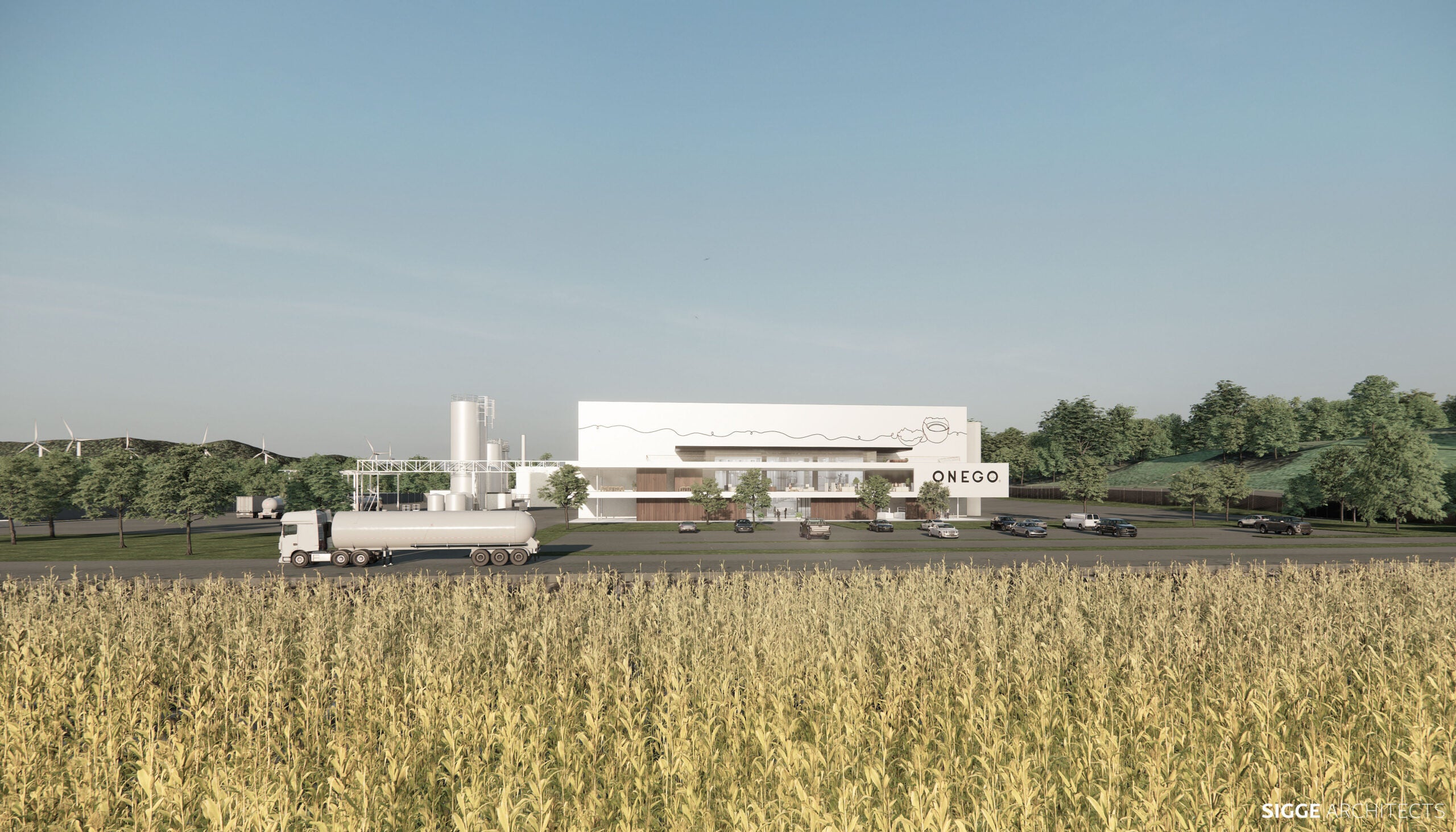Most farmers today use artificial insemination to breed their livestock and the practice, which was created out of necessity, has transformed into an industry with deep roots in Wisconsin. Some in the state’s genetics industry say it’s helping produce some of the best livestock in the world.
Artificial insemination became popular on Wisconsin dairy farms in the 1940s. In the early days, breeding companies would load up airplanes with small coolers filled with semen, fly over a customer’s farm, and drop off the cooler with a tiny parachute attached.
Today, farmers can page through catalogs and look through websites marketing livestock semen and embryos.
News with a little more humanity
WPR’s “Wisconsin Today” newsletter keeps you connected to the state you love without feeling overwhelmed. No paywall. No agenda. No corporate filter.
“If you look at our website, our website is very technologically advanced,” said Joel Groskreutz, president and CEO of Accelerated Genetics, the oldest and one of the largest livestock genetics companies in the world. “You can go on there and find any bull that’s ever been produced or produced semen in the world.”
Accelerated Genetics President and CEO Joel Groskreutz and Director of Veterinary Services Dr. Charles Brown outside the company’s 74 year-old production facility in Westby. Maureen McCollum
Recently, at the company’s production facility in Westby, Groskreutz entered a barn with about 70 elite bulls in pens, their big black eyes darting towards him. Two or three days a week, the staff collects semen from each of these bulls. Prices vary, but good semen can go for around $1,000.
Groskreutz introduced a 2,700-pound Holstein named Trump. He said they were able to tell early on that Trump had a lot of desirable traits, like high milk production and strength. The bull is popular, and his genetics have been sold around the world.
“He’s actually produced over 800,000 units and our goal is to get him to over 1 million units. In our industry to get a bull that produced a million units, that’s very, very unique,” explained Groskreutz.
Safety was the big reason why farmers moved to artificial insemination. Bulls are powerful animals with raging hormones and have killed countless people on farms.
Accelerated Genetics Director of Veterinary Services Dr. Charles Brown said there’s another reason many bulls have left the farm.
“It was a way to ensure that the bull was not a vector or carrier of diseases to that farm, which was quite common in natural service then and can still happen now,” Brown said. “So the AI business grew, one, out of safety and disease control. And in order to sell it, we’ve added genetic selection for better-quality animals.”
So as a farmer searches a catalog or a company’s website, they can decide if they want to purchase genetics from a cow that has high milk production, a long life span, or small calves.
Selective breeding and genetics, along with diet and management, have created livestock that is considered more efficient.
Dr. Glen Gilbert is the vice president of production for Genex Cooperative, a genetics company based in Shawano.
“If I roll the clock back 20 years, the average dairy cow perhaps produced 18,000 pounds of milk with a given amount of feed. Today, she’ll produce 24,000 pounds of milk with actually less feed than she did before,” Gilbert explained.
Gilbert said that’s important for the future, especially as access to land and water becomes a growing concern.
At Accelerated Genetics, Joel Groskreutz said farmers have to do more with less, especially as the demand for meat and dairy skyrockets worldwide.
“In 2050, we’re going to have over 9 billion people,” Groskreutz said. “We’re going to have to feed them somehow. We’re in an industry that’s going to help feed the world. That’s really quite gratifying.”
That means more livestock with Wisconsin roots — like the elite bull, Trump — will be feeding people around the world.
Wisconsin Public Radio, © Copyright 2026, Board of Regents of the University of Wisconsin System and Wisconsin Educational Communications Board.

